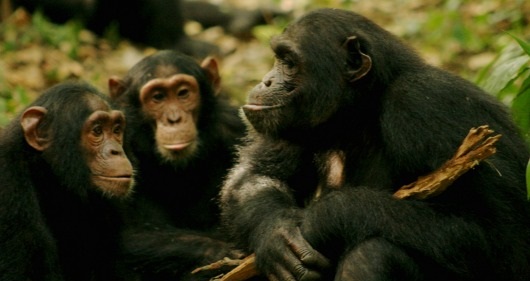How “great” an ape are you?

An online experiment to investigate whether humans can understand the meaning of ape gestures has been created by researchers at the University of St Andrews.
The test, which is available to the public, examines the ability of participants to interpret the meaning of gestures made by chimpanzees and bonobos.
Eventually the results will be collated and analysed to see if human beings have any innate ability to understand the gestures of our ape cousins.
The scientists, from the University of St Andrews’ Gesture Lab, behind the test have been studying the gestural communication of wild African great apes for more than a decade, finding links to the evolutionary origins of human language.
Recently they have been able to decode the meanings of many of the apes’ gestures, creating a great ape ‘dictionary’ that allows them to investigate what the apes are saying to each other. The researchers plan to make the whole dictionary public the end of the year, once the experiment is completed.
Their studies have shown that chimpanzees and bonobos have more than 60 different gestures that they use to communicate with each other. Many of the chimpanzee and bonobo gestures are the same for both of these closely related species of ape. Now the scientists want to find out whether or not their closest relatives – human beings – can understand what the gestures mean.
Dr Kirsty Graham and Dr Catherine Hobaiter, of the School of Psychology and Neuroscience at the University, have created an online citizen science quiz with short video clips of wild apes gesturing to each other. Participants can play the quiz by watching the gestures and choosing what they think each one means.
Dr Hobaiter said: “We have found that different species of ape use many of the same gestures – but at the moment there’s one ape missing from the picture – us. We might not use our ape gestures to communicate every day any more, but perhaps we still understand what some of them mean.”
Dr Graham added: “Citizen science projects like ours are great at getting large, diverse groups of people to answer the big questions. You don’t have to feel guilty about using our experiment to procrastinate – it’s for science.”
The researchers expect to announce their findings by the end of the year.
The experiment is now live online at Greatapedictionary.com
Image courtesy of © Cat Hobaiter
Issued by the University of St Andrews Communications Office. Contact Fiona MacLeod on 01334 462108/07714 140 559 or [email protected].
Category Research